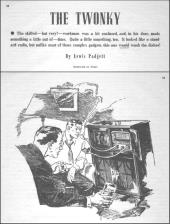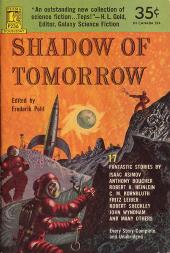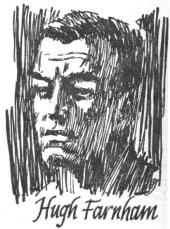Short Story
The Twonky
- by Henry Kuttner and C. L. Moore
- Astounding Science-Fiction, September 1942
A man, dazed from running into a temporal snag, appears in a radio factory, whereupon (before returning to his own time) he makes a radio that’s actually a Twonky, which promptly gets shipped to a Mr. Kerry Westerfield, who is initially quite confounded and amazed at everything it does.
Because of the story’s opening, I’m convinced the Twonky is from the future. The “temporal snag” that brought it to 1942 feels like an unexpected time rift to me, although the route back to the future is an intentional journey via an unexplained method. —Michael Main
Because of the story’s opening, I’m convinced the Twonky is from the future. The “temporal snag” that brought it to 1942 feels like an unexpected time rift to me, although the route back to the future is an intentional journey via an unexplained method. —Michael Main
“Great Snell!” he gasped. “So that was it! I ran into a temporal snag!”




